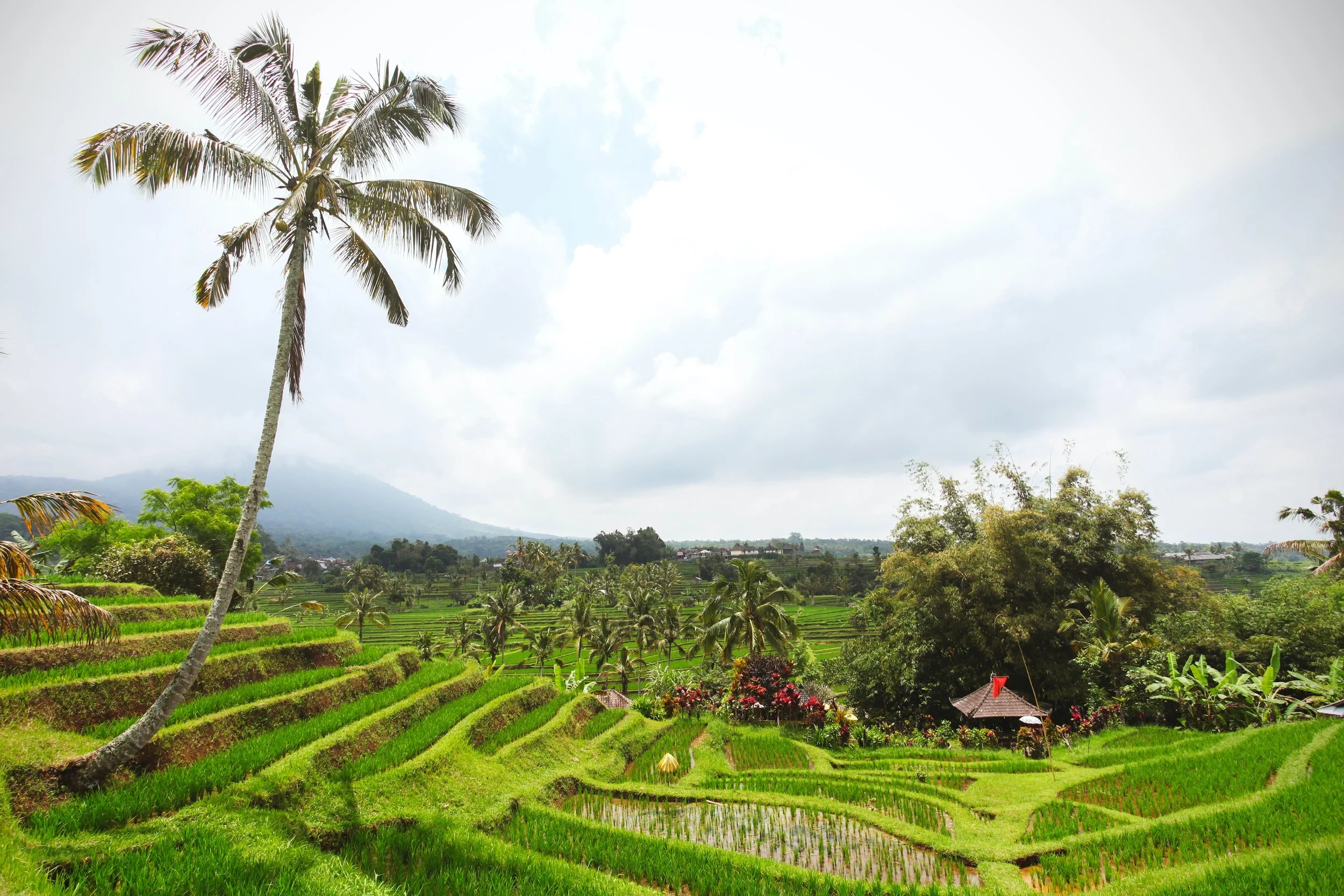Maximizing the Potential of Dukuh Village, Bali, through Eco-Friendly Gebang Home Design
More than half of Indonesian citizens are living in the city, according to Indonesia Statistics. Each year, more and more people are leaving their villages to move to urban areas. This trend is predicted to continue until 2045, with around 70% of the population living in the city. Many people migrate from villages to urban areas as cities are often deemed to be more developed - more opportunities and better education. However, this claim may not be entirely true.
If we think about it, villages actually have the greatest potential. Where are our clothes from? Where is our furniture from? And where do our meals come from? Take a look around, each item around you originates from the village. Your lunch right now came from a large green land that the cities are lacking. The rice comes from the paddy field in the villages, the meat comes from an open farm field where livestock is grown freely (in villages as well), and last but not least, the vegetables also come from the green land that only villages have.
Not only natural resources, but the human resources in the villages are also worth mentioning. From cultivation to harvesting, it takes skills, knowledge, and experience for farmers to raise either their crops or their livestock. The village is a critical source of everyone’s welfare.
“There is a lot of potential in the village that can be maximized,” Ni Putu Ary Pratiwi (Ary) told us. “We should empower the local community through environmental preservation framework so that they can optimize their village’s capability and generate profit from it while making a positive impact on the environment.”
Being exposed to the environmental conservation world for 5 years has awakened Ary’s passion to preserve the environment, especially in the villages. She particularly mentioned her visit to Dukuh Village which is located downhill from Agung Mountain. With the dry and barren climate of Agung Mountain, the village cultivates gebang or Agave sp on their land. This crop is grown for its fiber to be used as the hair of barong.
Women should have a growth mindset. In this era, women are not bound to domestic work. They could also be the backbone of a household. Hence, they should feel empowered to create and innovate in order to improve their wellbeing.
Ary and her team aim to collaborate with the local community to implement sustainable practices in cultivating gebang. They aspire to contribute to the economic development of the village. With the majority of local artisans being women, Ary and her team decided to focus on them. Nonetheless, they also believe that youth is the golden ticket to a better future. They are creative and innovative. It is vital that youth is aware of the sustainability issues around them and take action to address them. Frankly speaking, the fate of the earth is in the youth’s hands. Hence, women and youth are the centers of their sustainable business target.
With the target and idea at hand, Ary and her team aspire to build a home decor business that uses gebang as the main material. From coasters for our wet mug to lamp caps for that lamp in the living room, they seek to produce them from gebang. However, with limited knowledge of sustainable business, Ary and her team realized that they need to enrich their knowledge and skills. Therefore, they decided to commit to a 9-month incubation program in INKURI.
Coming from different backgrounds does not stop them from going after the same objective: to create a positive impact through a sustainable home decor business. After all, this is what unites them in the very first place. Aside from Ary, the team has Gede Juliantara with a background in digital marketing, Ayu Trisna as the youngest member of the team with a background in accounting, Sri Widari with a background in economy, and Sandi Putra with a background in management.
It is important to preserve the environment, from mountains to seas. A creative economy that is based on the pillar of profit, people, and planet is the answer to generating profits for local artisans while taking care of the environment and the community.
In addition to the 1-on-1 mentoring session, another activity that has helped this team the most is the field trip to the existing sustainable business in Bali. They were showered with deep insights into sustainable business which left them with more motivation and passion to establish their business. The network and friendships made along the way have also been great additional perks for Ary and her team.

